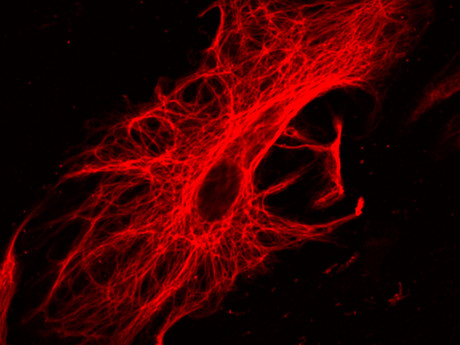A urine test for motor neuron disease

A new test to help patients suffering from motor neuron disease (MND) has been developed by South Australian researchers in collaboration with the University of Miami’s Miller School of Medicine.
Flinders University senior research fellow Dr Mary-Louise Rogers believes that improved testing for MND systems will lead to better outcomes for patients. “A standardised, easy-to-collect urine test could be used as a more accurate progression and prognostic biomarker in clinical trials,” she said.
According to data from Deloitte Access Economics, 1500 Australians are currently suffering from MND, with two more diagnosed every day. The cost to the national healthcare system is estimated at $1.9 billion annually.
Better testing will lead to improved treatment and better interventions, saving both time and money for the healthcare system, and better quality of life for patients.
This new test measures a key protein biomarker found in MND patients’ urine and will be used in upcoming clinical trials in Miami. “This will accelerate progress towards more rapid identification of improved treatments for MND and save time and money by faster exclusion of less effective or ineffective drugs,” said Dr Rogers.
The only biological-fluid-based biomarker of disease progression currently known is the urinary protein 75ECD, and there are no validated pharmaco-dynamic biomarkers for either MND or Lou Gehrig’s disease (amyotrophic lateral sclerosis), which slowly robs patients of muscle control as motor neurons die off. There is hope that this new test could lead to better outcomes for patients suffering from these rare but deadly neurodegenerative diseases.
Over the past six years, Dr Rogers and Stephanie Shepheard of the Flinders University Centre for Neuroscience have performed a comparative study of the testing system on MND and non-MND patients in South Australia. Their results were collated with data from Professor Michael Benatar of the Department of Neurology at the Miller School of Medicine. Professor Benatar has been trialling the biomarker test on American sufferers of MND.
Their combined results are published in the US journal Neurology, with support for this study coming from the Neville and Jeanne York Family Scholarship, Australian Rotary Health, ALS Recovery Fund, Muscular Dystrophy Association, ALS Association, Flinders Foundation, Motor Neurone Disease Research Institute of Australia and the US National Institutes of Health Rare Diseases Clinical Research Network.
Mini lung organoids could help test new treatments
Scientists have developed a simple method for automated the manufacturing of lung organoids...
Clogged 'drains' in the brain an early sign of Alzheimer’s
'Drains' in the brain, responsible for clearing toxic waste in the organ, tend to get...
World's oldest known RNA extracted from woolly mammoth
The RNA sequences are understood to be the oldest ever recovered, coming from mammoth tissue...



